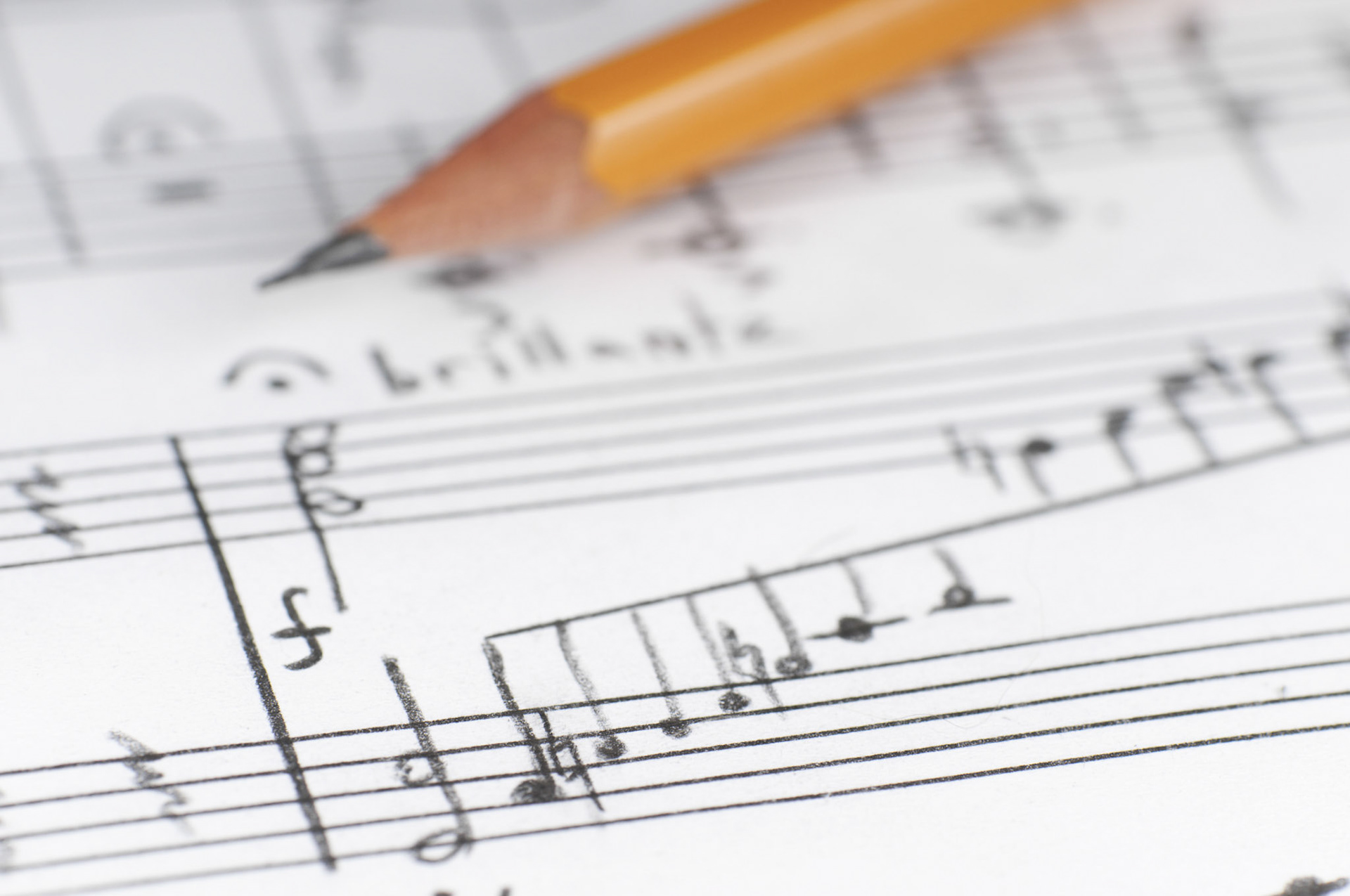



Focus Lock Techniques
by Michael Saltar
composer & creator of the Spirit Focus Playlist
composer & creator of the Spirit Focus Playlist
If you're the type who loves detail, the following list will satisfy your curiosity. These were the techniques I heard in that soundtrack that had such a powerful impact on me that day. I wanted to see why. Now I use these techniques regularly — and many more — in my own focus music:
1. Instrumental
The soundtrack, for starters, was a wordless score (an "instrumental" — meaning there were no lyrics to distract the listener). This element is important if the goal is to focus the listener's attention on something other than the music. In our case it would be to quiet our minds so our spirits can focus on reading God's Word, or hearing His voice — not the music.
The soundtrack, for starters, was a wordless score (an "instrumental" — meaning there were no lyrics to distract the listener). This element is important if the goal is to focus the listener's attention on something other than the music. In our case it would be to quiet our minds so our spirits can focus on reading God's Word, or hearing His voice — not the music.
2. Foundation Pitch
The soundtrack used a time-tested classical technique (which actually dates back centuries before the classical era, if anyone cares) known as "pedal point," or a "drone" pitch, usually in the low bass. This sustained note provides a sense of foundation or strong reassurance — similar to the feeling of a long embrace. The power of this sustain to create a focus lock is unmistakable.
The soundtrack used a time-tested classical technique (which actually dates back centuries before the classical era, if anyone cares) known as "pedal point," or a "drone" pitch, usually in the low bass. This sustained note provides a sense of foundation or strong reassurance — similar to the feeling of a long embrace. The power of this sustain to create a focus lock is unmistakable.
3. Patterns
Abundant accompaniment patterns — or what's known as "ostinati" — provide an undercurrent of steady motion and provide a sense of stability.
Abundant accompaniment patterns — or what's known as "ostinati" — provide an undercurrent of steady motion and provide a sense of stability.
4. No Stops.
Traditional songs normally arrive at "cadences" which sound much like brake lights to our ear: it's a moment when a musical thought concludes before moving on. The effect, though logical, draws attention to itself. Film scores commonly reject cadences in favor of moving the sound forward with cadence-free phrasing and fluid, time-stretched transitions ("rubato") for the feeling of freedom and continuity. No stops = no distractions.
Traditional songs normally arrive at "cadences" which sound much like brake lights to our ear: it's a moment when a musical thought concludes before moving on. The effect, though logical, draws attention to itself. Film scores commonly reject cadences in favor of moving the sound forward with cadence-free phrasing and fluid, time-stretched transitions ("rubato") for the feeling of freedom and continuity. No stops = no distractions.
5. Unfamiliar (New) Melody.
Another more modern technique is the use of unfamiliar, or "through-composed" melodies which don't attempt to be noticed or memorable. The second we can say we recognize a tune, the music is now drawing attention to itself. Usually, most listeners will purposely select tunes they already know when they choose instrumental music, but Hollywood is cognizant of the fact that familiar tunes actually distract from the center of attention: the action of the movie. The result of unfamiliar (new) melodies keeps the focus on the movie. This way, the listener is less aware of the music, and instead more sensitive to the intended focal point.
Another more modern technique is the use of unfamiliar, or "through-composed" melodies which don't attempt to be noticed or memorable. The second we can say we recognize a tune, the music is now drawing attention to itself. Usually, most listeners will purposely select tunes they already know when they choose instrumental music, but Hollywood is cognizant of the fact that familiar tunes actually distract from the center of attention: the action of the movie. The result of unfamiliar (new) melodies keeps the focus on the movie. This way, the listener is less aware of the music, and instead more sensitive to the intended focal point.
These are only a few of the many techniques available to modern composers. If my analysis was all Greek to you, let's just say all the right ingredients were in the sauce to create what amounts to a mental focus lock.
The Spirit Focus Playlist is an ever-growing collection of original music. The point is to keep adding fresh, new music so that familiarity with the music doesn't detract from the focus effect.
Want to help encourage others?
The playlist is free to the public, but if you choose to donate, you're not only helping speed up the release date: more importantly, you're also helping create new music to encourage other believers to focus on hearing the Holy Spirit. New music keeps the playlist fresh — one of the critical elements of the "focus-lock" principle.
All gifts are tax deductible to the 501(c)(3) non-profit Sam Saltar Evangelistic Association, Inc.
Get notified when it's available.
(The playlist is FREE.)
Yes, please let me know when the Spirit Focus Playlist is ready to play.
Thank you for your interest. We'll let you know!